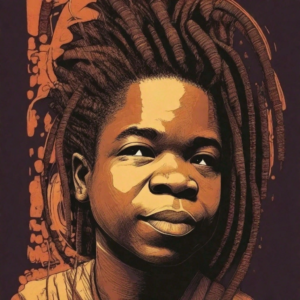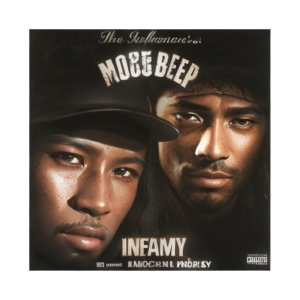Tracy Chapman's Fast Car
Tracy Chapman’s self-titled debut album, released in 1988, stands as a timeless testament to the power of raw talent and poignant storytelling. With her distinct blend of folk, rock, and blues, Chapman emerged onto the music scene with a quiet yet resounding force that captivated listeners around the world. This album not only introduced Chapman as a formidable singer-songwriter but also served as a reflection of the social and political landscape of its time.
From the moment the first chords of “Talkin’ Bout a Revolution” reverberate through the speakers, listeners are drawn into Chapman’s world—a world where hope, resilience, and social consciousness intersect. Each track on the album carries with it a sense of authenticity and honesty that is both refreshing and deeply moving. As we delve into the musical journey crafted by Chapman, we are invited to explore themes of love, injustice, struggle, and perseverance, all woven together with masterful artistry.
In this review, we will delve into the various aspects of Tracy Chapman’s debut album, exploring its musical style and genre, artistic direction, lyrical depth, production quality, vocal performance, and overall impact on both the music industry and its listeners. Through this exploration, we aim to unravel the layers of Chapman’s artistry and understand the enduring legacy of this remarkable album.
Musical Style and Genre
Tracy Chapman’s self-titled album is a masterful fusion of various musical styles, rooted primarily in folk and infused with elements of rock, blues, and soul. Chapman’s distinctive style transcends traditional genre boundaries, creating a sound that is uniquely her own and resonates with a wide audience.
 At its core, the album’s musical style can be characterized by its stripped-down instrumentation and emotive vocals. Chapman’s minimalist approach allows the focus to remain squarely on the storytelling and the emotional depth of her lyrics. Songs like “Fast Car” and “Baby Can I Hold You” exemplify this simplicity, with acoustic guitar serving as the primary accompaniment to Chapman’s soulful voice.
At its core, the album’s musical style can be characterized by its stripped-down instrumentation and emotive vocals. Chapman’s minimalist approach allows the focus to remain squarely on the storytelling and the emotional depth of her lyrics. Songs like “Fast Car” and “Baby Can I Hold You” exemplify this simplicity, with acoustic guitar serving as the primary accompaniment to Chapman’s soulful voice.
Despite its folk foundation, the album incorporates elements of rock and blues, particularly evident in tracks like “Talkin’ Bout a Revolution” and “Mountain O’ Things.” These songs feature driving rhythms, gritty guitar riffs, and powerful vocal delivery, adding layers of intensity and urgency to Chapman’s narrative.
Moreover, Chapman’s infusion of soulful melodies and gospel-inspired harmonies further enriches the album’s sonic landscape. Tracks such as “For My Lover” and “Across the Lines” showcase her ability to infuse her folk foundation with elements of soul, creating a sound that is both timeless and deeply resonant.
Overall, Tracy Chapman’s debut album defies easy categorization, blending elements of folk, rock, blues, and soul into a cohesive and compelling musical tapestry. Through her innovative approach to genre and her emotive storytelling, Chapman has created an album that continues to captivate audiences decades after its release.
Artistic Directio
Tracy Chapman’s artistic direction on her self-titled album is characterized by its simplicity, sincerity, and social consciousness. From the album’s cover art to its lyrical content and musical arrangements, Chapman’s vision is clear: to use her platform as a musician to shed light on pressing social issues and to connect with listeners on a deeply emotional level.
One of the most striking aspects of Chapman’s artistic direction is her unapologetic honesty and authenticity. Throughout the album, she eschews flashy production techniques in favor of a more stripped-down, intimate approach. This deliberate choice allows Chapman’s voice and lyrics to take center stage, creating a sense of immediacy and intimacy that draws listeners in.
In terms of lyrical content, Chapman’s artistic direction is characterized by its thoughtfulness and social consciousness. Many of the songs on the album tackle weighty topics such as poverty, inequality, and social injustice, often with a sense of empathy and compassion. Chapman’s ability to address these issues with nuance and sensitivity sets her apart as a songwriter and underscores her commitment to using her music as a tool for social change.
Furthermore, Chapman’s artistic direction is evident in her choice of collaborators and musical arrangements. Throughout the album, she surrounds herself with talented musicians who complement her sound without overpowering it. From the plaintive acoustic guitar of “Fast Car” to the soulful harmonies of “For My Lover,” each track is carefully crafted to evoke a specific mood and atmosphere, reflecting Chapman’s artistic vision and sensibilities.
Overall, Tracy Chapman’s artistic direction on her debut album is characterized by its simplicity, sincerity, and social consciousness. Through her honest lyrics, stripped-down arrangements, and commitment to addressing pressing social issues, Chapman has created a timeless work of art that continues to resonate with listeners decades after its release.
Lyrics and Themes
Tracy Chapman’s self-titled album is a lyrical tour de force, offering a poignant exploration of themes such as love, loss, resilience, and social justice. Chapman’s gift for storytelling shines through in each track, as she weaves together narratives that are both deeply personal and universally relatable.
One of the album’s standout tracks, “Fast Car,” encapsulates many of the themes that permeate Chapman’s lyrics. The song tells the story of a young woman yearning for escape from the confines of poverty and despair, dreaming of a better life and a brighter future. Chapman’s lyrics paint a vivid picture of longing and hope, capturing the universal desire for freedom and self-determination.
 Similarly, songs like “Talkin’ Bout a Revolution” and “Across the Lines” delve into themes of social justice and inequality, highlighting the struggles faced by marginalized communities and calling for collective action and change. Chapman’s lyrics are imbued with a sense of urgency and conviction, urging listeners to confront the injustices of the world and work towards a more equitable society.
Similarly, songs like “Talkin’ Bout a Revolution” and “Across the Lines” delve into themes of social justice and inequality, highlighting the struggles faced by marginalized communities and calling for collective action and change. Chapman’s lyrics are imbued with a sense of urgency and conviction, urging listeners to confront the injustices of the world and work towards a more equitable society.
In addition to her social commentary, Chapman also explores themes of love, heartache, and self-discovery throughout the album. Tracks like “Baby Can I Hold You” and “For My Lover” offer intimate glimpses into the complexities of human relationships, while songs like “Behind the Wall” and “Mountains O’ Things” delve into the emotional toll of materialism and societal expectations.
What sets Chapman’s lyrics apart is their depth and authenticity. Whether she’s singing about personal struggles or broader social issues, Chapman approaches her subject matter with honesty and empathy, drawing listeners in with her heartfelt storytelling and emotional sincerity. Her ability to blend personal reflection with social commentary makes her lyrics both powerful and profoundly moving, cementing her reputation as one of the most gifted songwriters of her generation.
Overall, Tracy Chapman’s self-titled album stands as a testament to the power of words and music to inspire, provoke, and move listeners. Through her evocative lyrics and timeless themes, Chapman invites us to reflect on our own lives and the world around us, challenging us to strive for a more just and compassionate society.
Production Quality
The production quality of Tracy Chapman’s self-titled album is a key component of its enduring appeal. Released in 1988, the album benefited from a careful balance between raw authenticity and polished craftsmanship, resulting in a sound that feels both intimate and sonically rich.
One of the defining features of the album’s production is its minimalist approach. Rather than relying on elaborate arrangements or studio embellishments, the production team opted for a stripped-down aesthetic that allows Chapman’s voice and lyrics to take center stage. This decision lends the album a sense of immediacy and intimacy, drawing listeners in and allowing them to connect with the music on a deeper level.
 Despite its minimalist approach, the album’s production quality is far from simplistic. Each track is meticulously crafted, with attention paid to every detail—from the warm tones of the acoustic guitars to the subtle nuances of Chapman’s vocal performance. The production team made strategic use of dynamics and texture, allowing the songs to ebb and flow organically while maintaining a cohesive sonic identity.
Despite its minimalist approach, the album’s production quality is far from simplistic. Each track is meticulously crafted, with attention paid to every detail—from the warm tones of the acoustic guitars to the subtle nuances of Chapman’s vocal performance. The production team made strategic use of dynamics and texture, allowing the songs to ebb and flow organically while maintaining a cohesive sonic identity.
Moreover, the album’s production quality is characterized by its timelessness. While many albums from the late 1980s may sound dated today due to advancements in recording technology and changing musical trends, Tracy Chapman’s self-titled album has managed to stand the test of time. This is in part due to its understated production, which eschews trendy production techniques in favor of a more timeless sound.
Overall, the production quality of Tracy Chapman’s self-titled album plays a crucial role in shaping its sonic landscape and contributing to its enduring appeal. Through its minimalist aesthetic, meticulous craftsmanship, and timeless sound, the album remains a shining example of how great production can elevate an already stellar musical work.
Instrumentation and Arrangement
Tracy Chapman’s self-titled album showcases a masterful blend of instrumentation and arrangement that complements her emotive vocals and thought-provoking lyrics. With a focus on acoustic guitar-driven melodies and understated arrangements, the album’s instrumentation serves as a perfect backdrop for Chapman’s storytelling.
At the heart of many tracks on the album is Chapman’s skillful acoustic guitar playing. Songs like “Fast Car” and “Behind the Wall” feature intricate fingerpicking patterns and soulful chord progressions that add depth and texture to the music. Chapman’s guitar work not only provides a melodic foundation for the songs but also serves as a vehicle for emotional expression, conveying the mood and atmosphere of each track with nuance and subtlety.
In addition to Chapman’s guitar playing, the album also features tasteful contributions from a variety of other instruments. From the haunting harmonica on “Across the Lines” to the plaintive violin on “For My Lover,” each instrument is used sparingly but effectively, adding layers of richness and complexity to the music. The arrangements are carefully crafted to allow each instrument its moment to shine, creating a dynamic and engaging listening experience.
One of the most impressive aspects of the album’s instrumentation and arrangement is its ability to convey a wide range of emotions and moods. From the intimate introspection of songs like “Baby Can I Hold You” to the impassioned urgency of tracks like “Talkin’ Bout a Revolution,” the instrumentation serves as a powerful tool for conveying the emotional depth and complexity of Chapman’s lyrics.
Overall, Tracy Chapman’s self-titled album is a testament to the power of thoughtful instrumentation and arrangement in shaping the sonic landscape of a record. Through its skillful blending of acoustic guitar, subtle instrumentation, and understated arrangements, the album creates a musical backdrop that is both captivating and emotionally resonant, elevating Chapman’s already stellar songwriting to new heights.
Vocal Performance
Tracy Chapman’s self-titled album is distinguished by her exceptional vocal performance, characterized by its soulful resonance, emotional depth, and remarkable versatility. From tender ballads to impassioned anthems, Chapman’s voice serves as the emotional anchor of the album, drawing listeners in with its raw honesty and heartfelt delivery.
One of the most striking aspects of Chapman’s vocal performance is its authenticity. With a voice that is rich and soulful, yet tinged with vulnerability, Chapman brings a raw honesty to each track that is both captivating and deeply moving. Whether she’s conveying the pain of heartache in “Baby Can I Hold You” or the urgency of social change in “Talkin’ Bout a Revolution,” Chapman’s voice carries an emotional weight that resonates long after the music has ended.
Moreover, Chapman’s vocal versatility is on full display throughout the album. From the hauntingly beautiful falsetto of “For My Lover” to the gritty intensity of “Mountains O’ Things,” Chapman demonstrates an impressive range and control that allows her to effortlessly adapt to the diverse musical styles and moods present on the album. Her ability to convey a wide spectrum of emotions through her voice is a testament to her skill as a vocalist and adds depth and dimension to her already powerful lyrics.
In addition to her technical prowess, Chapman’s vocal performance is also marked by its sincerity and conviction. Whether she’s singing about personal struggles or addressing broader social issues, Chapman approaches each song with a sense of purpose and passion that is palpable. Her commitment to her craft and her unwavering dedication to speaking truth through her music shine through in every note she sings, making her vocal performance on this album truly unforgettable.
Overall, Tracy Chapman’s self-titled album is a showcase of her exceptional vocal talent, characterized by its soulful resonance, emotional depth, and remarkable versatility. Through her authentic delivery and heartfelt expression, Chapman brings her lyrics to life in a way that is both powerful and profoundly moving, leaving an indelible mark on listeners long after the music has ended.
Flow and Cohesion
Tracy Chapman’s self-titled album possesses a seamless flow and cohesive narrative that guides listeners on a captivating musical journey from start to finish. From the opening chords of “Talkin’ Bout a Revolution” to the closing notes of “For You,” each track transitions seamlessly into the next, creating a sense of unity and coherence that elevates the album as a whole.
One of the key elements contributing to the album’s flow and cohesion is its careful pacing and sequencing. Chapman and her production team have crafted an album that strikes a delicate balance between uptempo anthems and introspective ballads, ensuring that each song complements the one that precedes it while also maintaining a sense of variety and momentum. This thoughtful sequencing allows the album to ebb and flow naturally, drawing listeners in and keeping them engaged from beginning to end.
Moreover, the thematic consistency of the album contributes to its overall flow and cohesion. From the socially conscious lyrics of “Talkin’ Bout a Revolution” to the introspective reflections of “Fast Car” and “Baby Can I Hold You,” each song on the album explores themes of love, loss, resilience, and social justice in its own unique way. Yet, despite their differences, these songs are united by a common thread of authenticity and sincerity that ties the album together thematically and emotionally.
Additionally, Chapman’s distinctive vocal style and emotive delivery serve as a unifying force throughout the album, providing a sense of continuity and coherence even as the musical styles and lyrical themes vary from track to track. Whether she’s singing a tender ballad or belting out a defiant anthem, Chapman’s voice remains a constant presence, guiding listeners through the ups and downs of the album’s emotional landscape with grace and poise.
Overall, Tracy Chapman’s self-titled album is a testament to the power of flow and cohesion in creating a truly immersive musical experience. Through its careful pacing, thematic consistency, and Chapman’s masterful vocal performance, the album invites listeners to embark on a transformative journey that resonates long after the final notes fade away.
Innovation and Originality
Tracy Chapman’s self-titled album is a groundbreaking work that showcases innovation and originality in both its musical approach and thematic content. Released in 1988, the album defied conventions and pushed boundaries, establishing Chapman as a trailblazing artist whose impact would be felt for decades to come.
One of the most innovative aspects of the album is Chapman’s unique fusion of folk, rock, blues, and soul influences. At a time when mainstream music was dominated by pop and glam rock, Chapman’s decision to embrace a more stripped-down, acoustic-driven sound was both bold and unconventional. By blending elements of traditional folk music with contemporary rock and soul sensibilities, Chapman created a sound that was distinctly her own, setting her apart from her peers and earning her widespread acclaim.
 Moreover, Chapman’s lyrics and thematic content were also ahead of their time, tackling issues of social justice, inequality, and personal struggle with a depth and nuance that was rare in popular music at the time. Songs like “Talkin’ Bout a Revolution” and “Across the Lines” addressed pressing social issues with a sense of urgency and conviction, while tracks like “Fast Car” and “Baby Can I Hold You” offered intimate reflections on love, loss, and resilience. Chapman’s willingness to confront taboo subjects and challenge societal norms marked her as a fearless innovator and a voice for change in the music industry.
Moreover, Chapman’s lyrics and thematic content were also ahead of their time, tackling issues of social justice, inequality, and personal struggle with a depth and nuance that was rare in popular music at the time. Songs like “Talkin’ Bout a Revolution” and “Across the Lines” addressed pressing social issues with a sense of urgency and conviction, while tracks like “Fast Car” and “Baby Can I Hold You” offered intimate reflections on love, loss, and resilience. Chapman’s willingness to confront taboo subjects and challenge societal norms marked her as a fearless innovator and a voice for change in the music industry.
Furthermore, Chapman’s self-titled album was groundbreaking in its impact on the industry as a whole. Not only did it launch Chapman to international stardom and earn her critical acclaim, but it also paved the way for a new wave of singer-songwriters who eschewed mainstream trends in favor of authenticity and substance. Chapman’s influence can be heard in the work of artists across genres, from folk and rock to hip-hop and beyond, demonstrating the lasting impact of her innovative approach to music.
Overall, Tracy Chapman’s self-titled album is a shining example of innovation and originality in music. Through its groundbreaking blend of musical styles, fearless lyrical content, and lasting impact on the industry, the album remains a landmark achievement that continues to inspire and influence artists and listeners alike.
impact and Emotional Resonance
Tracy Chapman’s self-titled album has left an indelible mark on both the music industry and its listeners, thanks to its profound impact and emotional resonance. Released in 1988, the album transcended mere entertainment to become a powerful vehicle for social commentary and personal introspection, touching the hearts and minds of listeners around the world.
One of the album’s most significant impacts lies in its ability to spark conversations and provoke thought about pressing social issues. Chapman’s fearless lyrics and unapologetic approach to addressing topics such as poverty, inequality, and social injustice resonated deeply with audiences, inspiring a new generation of activists and advocates for change. Songs like “Talkin’ Bout a Revolution” and “Across the Lines” served as anthems for social movements, galvanizing listeners to take action and work towards a more just and equitable society.
Moreover, Chapman’s self-titled album has had a profound emotional impact on its listeners, thanks in large part to Chapman’s soulful vocals and deeply personal lyrics. Whether she’s singing about the pain of heartache in “Baby Can I Hold You” or the hope for a better future in “Fast Car,” Chapman’s emotive delivery and raw honesty evoke a powerful emotional response from listeners, forging a deep connection that transcends time and space.
Furthermore, the album’s emotional resonance is enhanced by its universal themes of love, loss, resilience, and redemption. Chapman’s ability to distill complex emotions into simple yet profound lyrics speaks to the shared human experience, allowing listeners from all walks of life to see themselves reflected in her music. This sense of empathy and connection has made the album a source of solace and inspiration for countless listeners over the years, providing comfort and reassurance in times of struggle and uncertainty.
Overall, Tracy Chapman’s self-titled album is a testament to the power of music to touch hearts, provoke thought, and inspire change. Through its impactful lyrics, soul-stirring vocals, and universal themes, the album continues to resonate with listeners of all ages and backgrounds, cementing its legacy as a timeless work of art that will be cherished for generations to come.
Awards and Recognition
Tracy Chapman’s self-titled album emerged as a cultural phenomenon upon its release in 1988, earning widespread acclaim and numerous awards that solidified its place in music history. Chapman’s debut effort was not only a critical success but also resonated deeply with audiences worldwide, capturing the zeitgeist of the late 1980s with its poignant lyrics and soul-stirring melodies.
At the forefront of the album’s accolades were the Grammy Awards, where Tracy Chapman received four nominations in 1989. Chapman’s nominations spanned across multiple categories, including Album of the Year and Best New Artist, a testament to the album’s impact and Chapman’s burgeoning talent as a singer-songwriter. Her captivating performance at the Grammy ceremony, where she delivered a mesmerizing rendition of “Fast Car,” further elevated her status as a rising star in the music industry and cemented her place in the hearts of listeners around the world.
Beyond the Grammy Awards, Tracy Chapman’s self-titled album received acclaim from music critics and publications, who hailed it as a landmark achievement in folk music and singer-songwriter storytelling. Chapman’s introspective lyrics and emotive vocals struck a chord with audiences, earning praise for their authenticity and emotional depth. The album appeared on numerous year-end lists and received accolades for its songwriting prowess, production quality, and social relevance, solidifying Chapman’s reputation as one of the most respected artists of her generation.
In addition to its critical acclaim, Tracy Chapman’s self-titled album achieved remarkable commercial success, reaching the top of the charts in multiple countries and earning platinum certification in key markets such as the United States, Canada, and the United Kingdom. Its enduring popularity has ensured its place as a classic album that continues to resonate with audiences of all ages, remaining a staple of radio playlists and music collections decades after its release.
Overall, Tracy Chapman’s self-titled album is celebrated not only for its artistic merit but also for its profound impact on both the music industry and society at large. Its recognition from industry organizations, critical acclaim, and commercial success underscore its significance as a groundbreaking work of art that has left an indelible mark on the music landscape and continues to inspire listeners around the world.
Replay Value and Lasting Impressions
Tracy Chapman’s self-titled album possesses a timeless quality that ensures its enduring replay value and lasting impact on listeners. Released in 1988, the album continues to resonate with audiences across generations, thanks to its poignant storytelling, soul-stirring melodies, and profound emotional depth.
One of the album’s greatest strengths is its ability to evoke a wide range of emotions and moods, making it equally suitable for contemplative introspection or spirited sing-alongs. Whether it’s the hauntingly beautiful “Fast Car,” the anthemic call-to-action of “Talkin’ Bout a Revolution,” or the heartfelt plea of “Baby Can I Hold You,” each track on the album offers something unique and compelling, inviting listeners to return to it time and time again.
Moreover, Tracy Chapman’s self-titled album transcends its original cultural context to address timeless themes and universal truths that remain relevant today. Chapman’s lyrics tackle issues of love, loss, resilience, and social justice with a depth and nuance that speaks to the shared human experience, allowing listeners from all walks of life to see themselves reflected in her music. This universality ensures that the album maintains its resonance and relevance, even as the world around us continues to change.
Furthermore, the album’s production quality and musical craftsmanship contribute to its lasting impression on listeners. Chapman’s soulful vocals, backed by understated yet powerful instrumentation, create a sonic landscape that is both captivating and emotionally resonant. Each song is meticulously crafted to evoke a specific mood and atmosphere, drawing listeners in and immersing them in Chapman’s world with its rich textures and subtle nuances.
Overall, Tracy Chapman’s self-titled album leaves a lasting impression on listeners, thanks to its timeless appeal, emotional resonance, and universal themes. Its enduring replay value ensures that it remains a beloved classic for years to come, continuing to inspire and move audiences with its powerful storytelling and soul-stirring melodies. Tracy Chapman’s debut album is not just a collection of songs; it’s a transformative musical experience that leaves an indelible mark on the hearts and minds of all who encounter it.
Final Thoughts
Tracy Chapman’s self-titled album stands as a timeless masterpiece that transcends the boundaries of time and genre, leaving an indelible mark on the music landscape and the hearts of listeners worldwide. From its soul-stirring melodies to its thought-provoking lyrics, the album offers a captivating journey through the human experience, inviting listeners to explore themes of love, loss, resilience, and social justice with depth and nuance.
Chapman’s debut effort is not merely a collection of songs but a powerful work of art that speaks to the shared struggles and triumphs of the human spirit. Through her emotive vocals, heartfelt storytelling, and fearless social commentary, Chapman connects with listeners on a deeply personal level, forging a bond that transcends language and culture.
Moreover, Tracy Chapman’s self-titled album is a testament to the power of music to inspire change and provoke thought. Chapman’s unwavering commitment to addressing pressing social issues with honesty and empathy serves as a beacon of hope in a world often fraught with division and injustice. Her music continues to inspire listeners to confront the challenges of our time with courage and compassion, reminding us of the transformative power of art to effect positive change in the world.
In conclusion, Tracy Chapman’s self-titled album is a timeless masterpiece that continues to resonate with audiences decades after its release. Its enduring legacy is a testament to Chapman’s talent as a songwriter and vocalist, as well as her ability to speak truth to power through her music. Tracy Chapman’s debut album is not just a musical journey; it’s a profound and deeply moving experience that leaves an indelible mark on all who have the privilege of listening.






